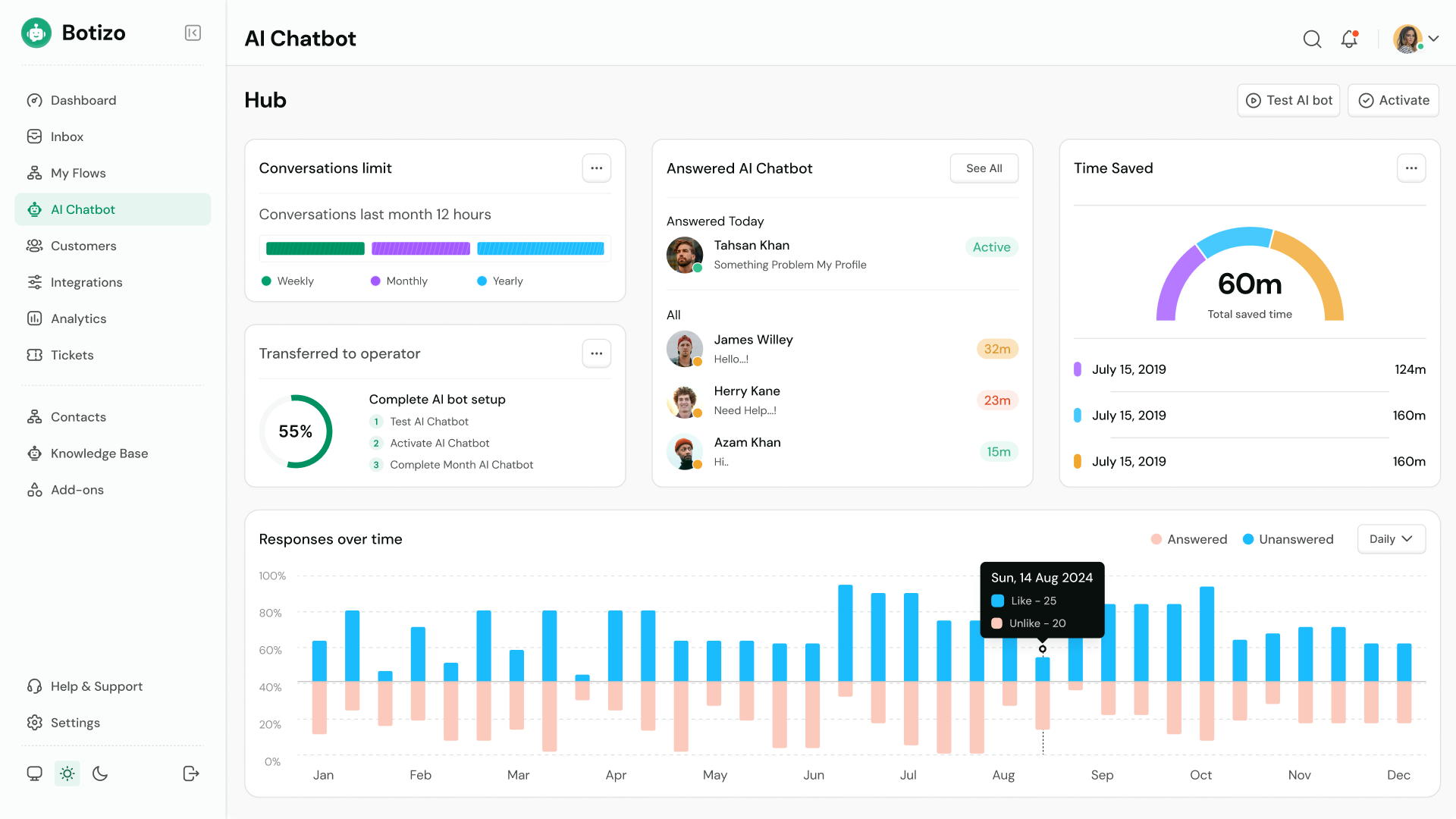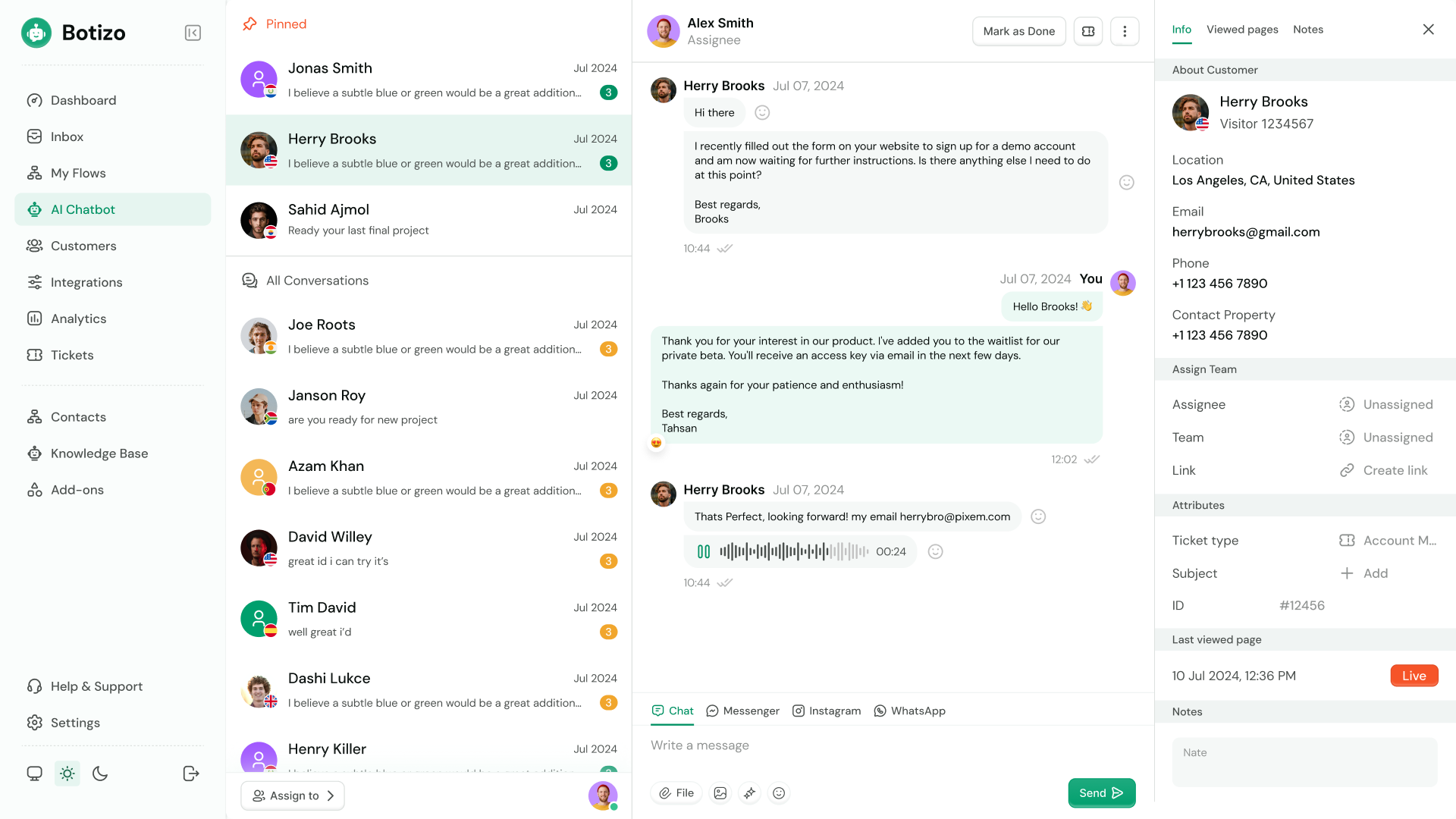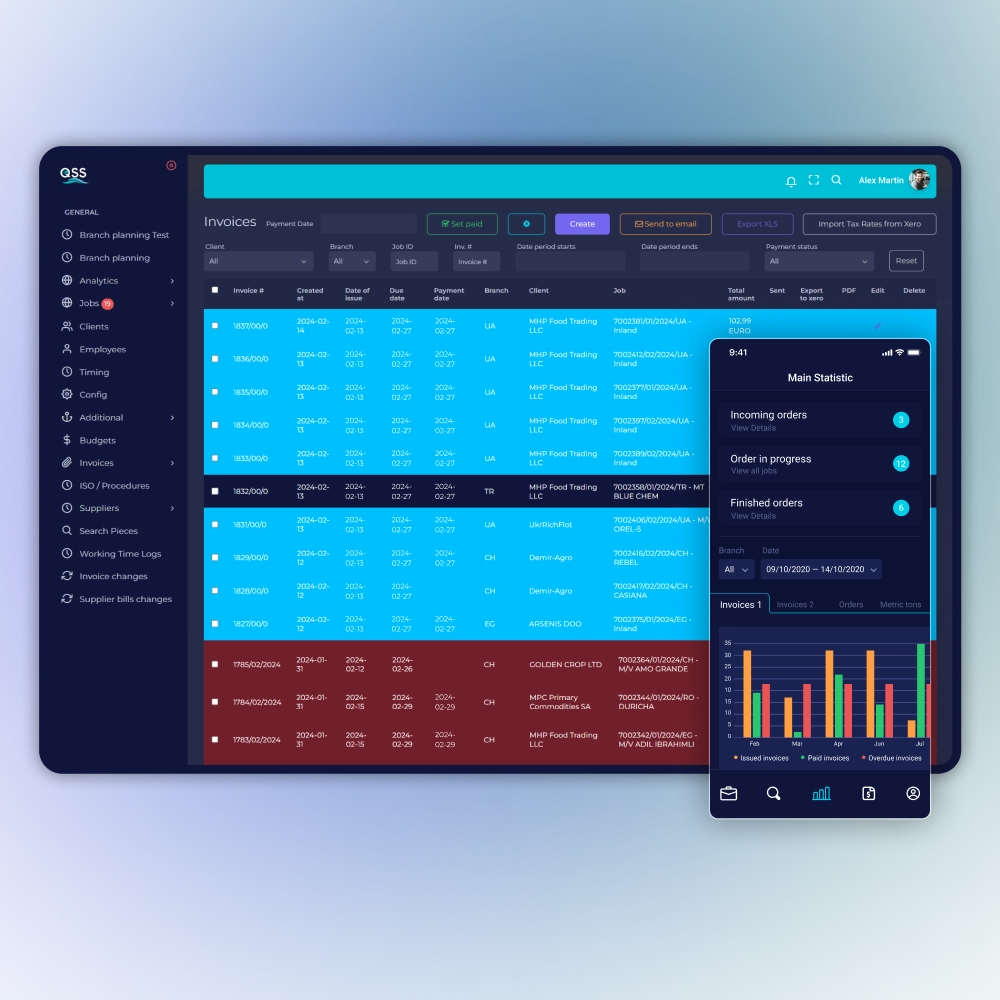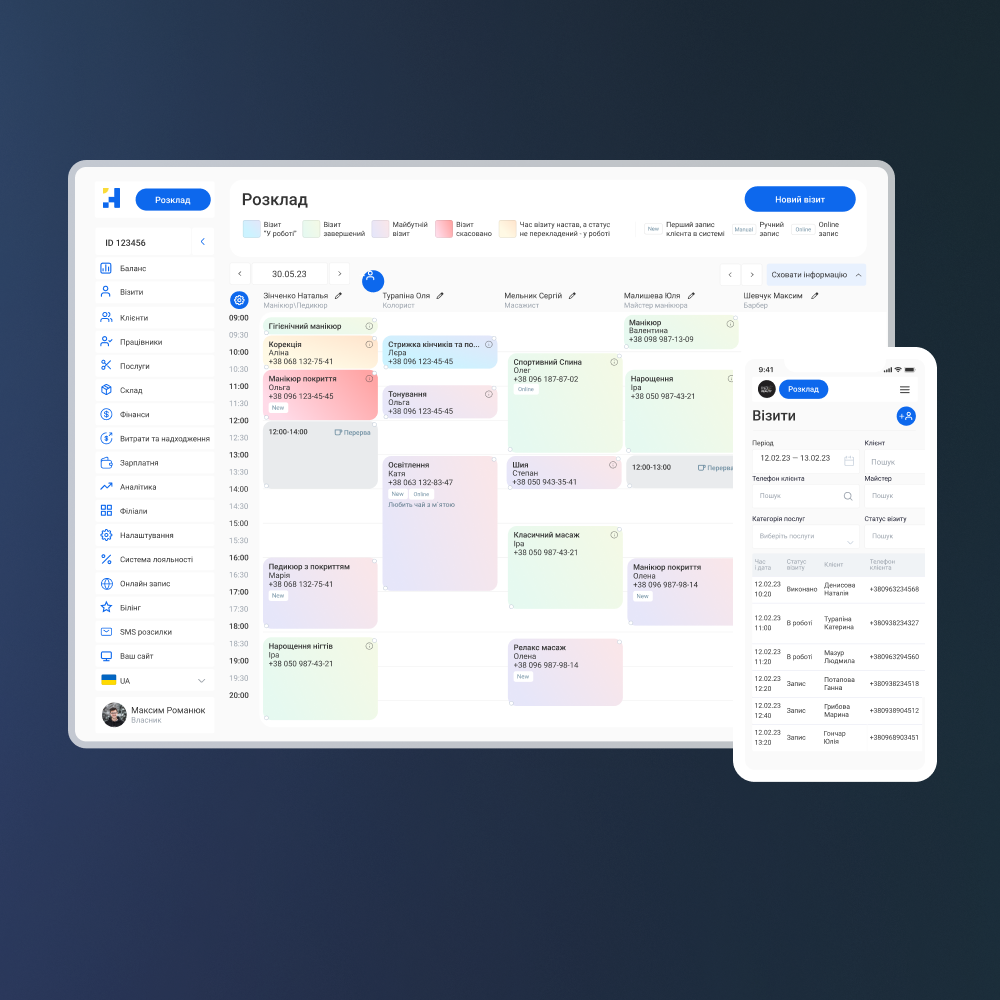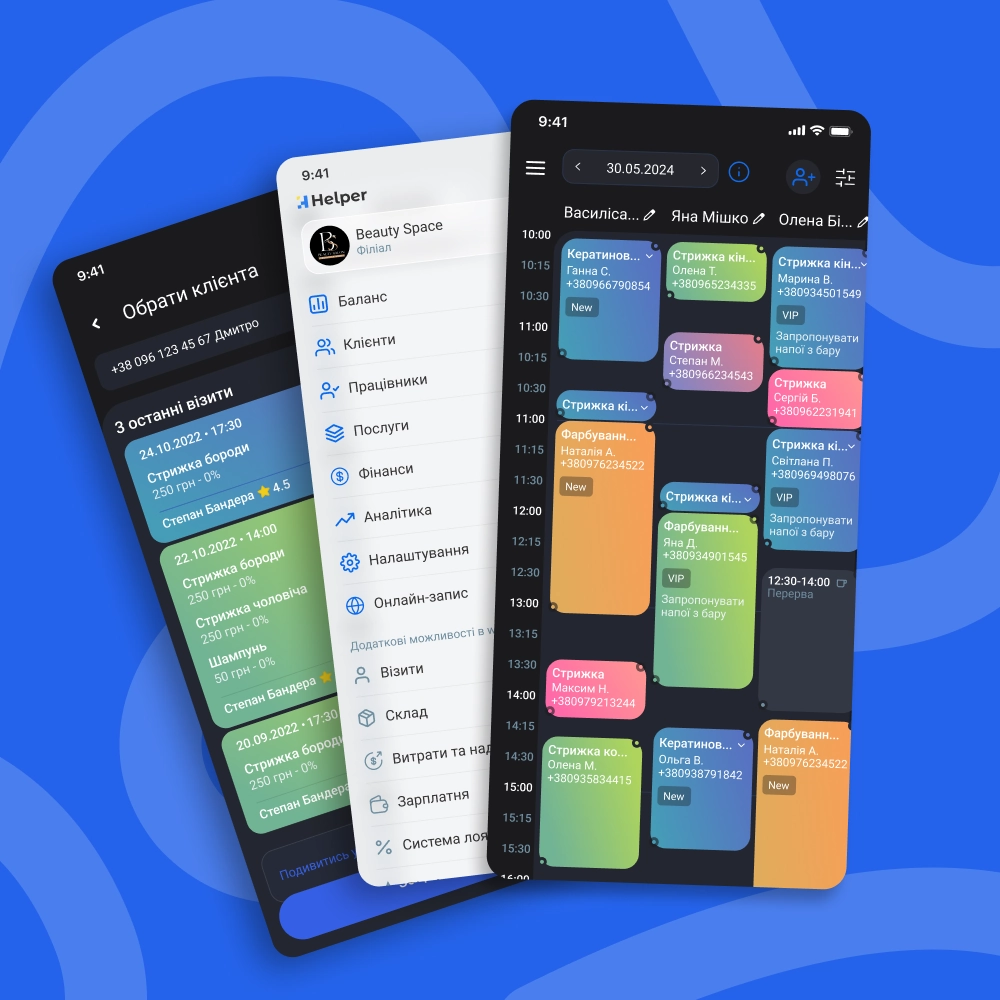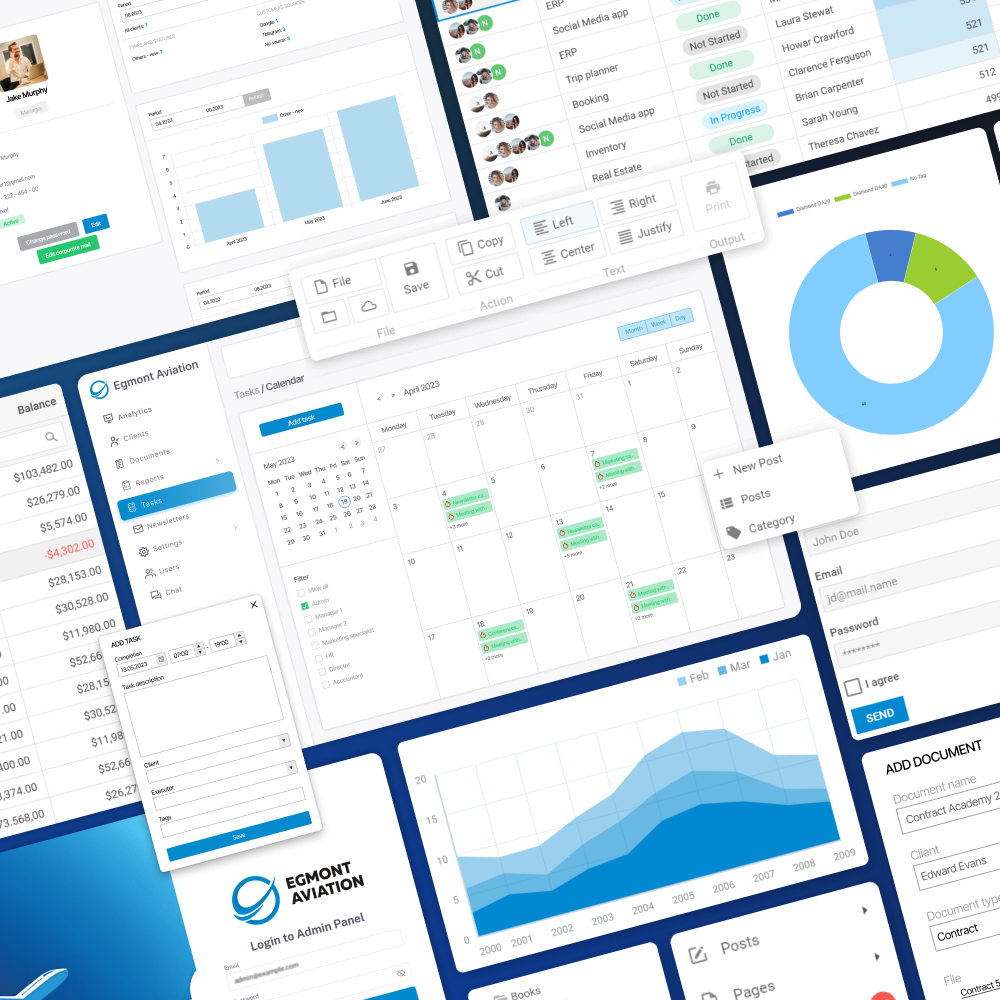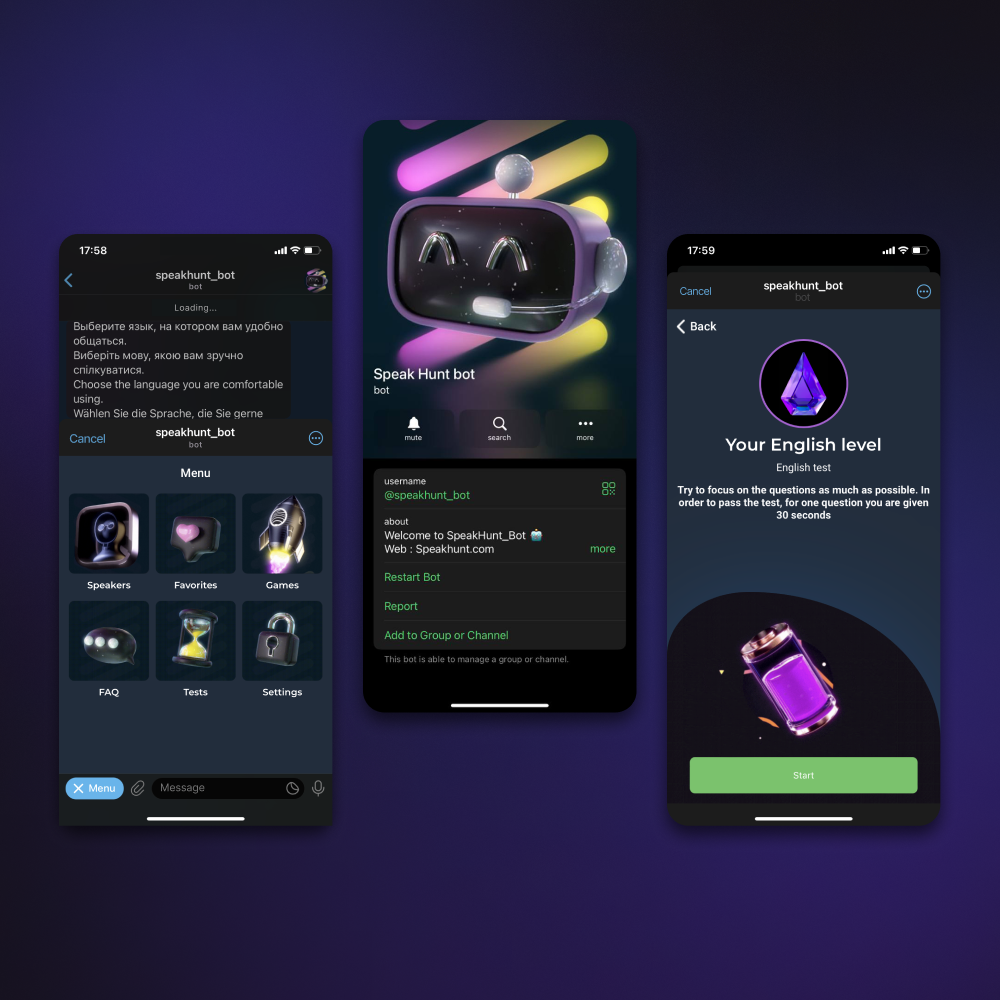








Built-in AI agents in CRM and ERP systems
Modern business software is capable of handling a wide range of processes, but it continues to evolve. Integration with AI-powered CRM and ERP systems has taken automation to a whole new level. With the implementation of ChatGPT and other AI technologies, they are becoming intelligent platforms that help businesses serve customers faster, optimize internal processes, and make informed decisions quickly.
Unlike traditional chatbots, which are limited to fixed scenarios, AI bots in CRM and ERP can analyze context, learn from company data, and interact with both employees and clients . This makes processes more efficient, service higher quality, and management decisions more informed.
AVADA MEDIA helps companies go beyond standard management systems by integrating artificial intelligence into business management programs. We offer the development of AI assistants that become part of your digital ecosystem, providing predictive analytics and personalization at every stage. You can order a CRM and ERP system with a built-in AI agent that works 24/7 to improve efficiency and drive strategic growth for your company.
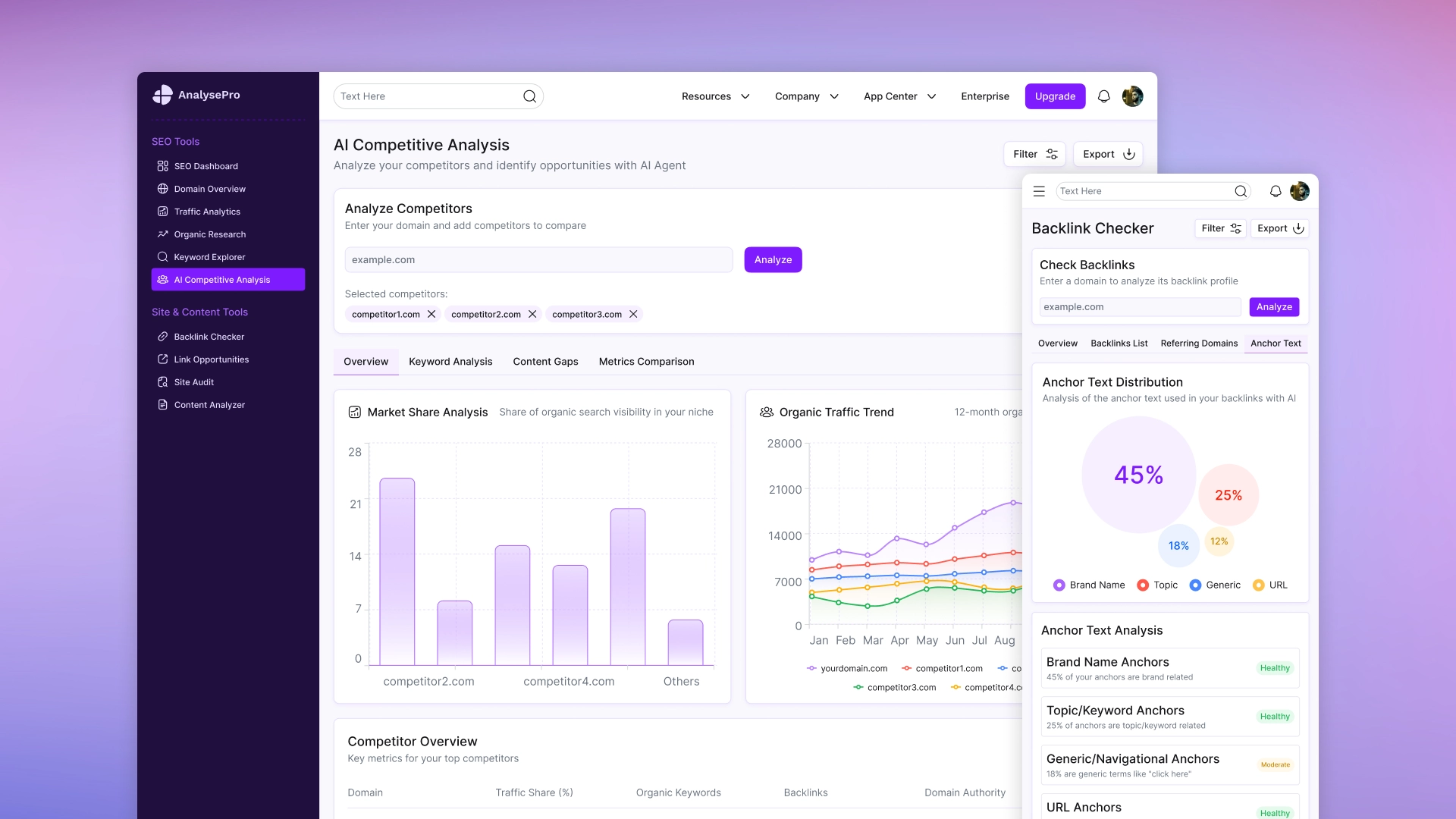
What opportunities does ERP and CRM AI offer?
CRM and ERP systems with AI agents enable a wide range of tasks that previously required significant time and human resources. Intelligent assistants take on repetitive and monotonous tasks, boosting productivity at all stages of business processes.
Automation of sales and customer communications
In CRM, AI agents perform key tasks that enable managers to work more efficiently and interact with clients faster and more accurately:
- analyze data about potential clients, evaluate the likelihood of conversion and automatically set priorities for sales managers;
- generate individual offers , recommend products or services, and create personalized newsletters based on an analysis of customer behavior and AI interaction history;
- enter data, update transaction statuses and generate reports;
- process requests via email , instant messengers, chats and voice channels;
- Automatically close simple tasks and redirect complex cases to employees with ready-made recommendations.
Assistance and reduction of workload for staff
AI agents in CRM help managers and operators perform daily tasks while improving the customer experience:
- remind employees of important events;
- generate documents and reports ;
- offer individual solutions and recommendations for further work with the client, taking into account the history of interaction with him, his preferences and behavior;
- They continuously learn from company data, analyze mistakes and successful cases, and improve their own recommendations and responses.
Thus, in CRM and ERP with AI, new employees receive a built-in intelligent mentor and master processes more quickly.
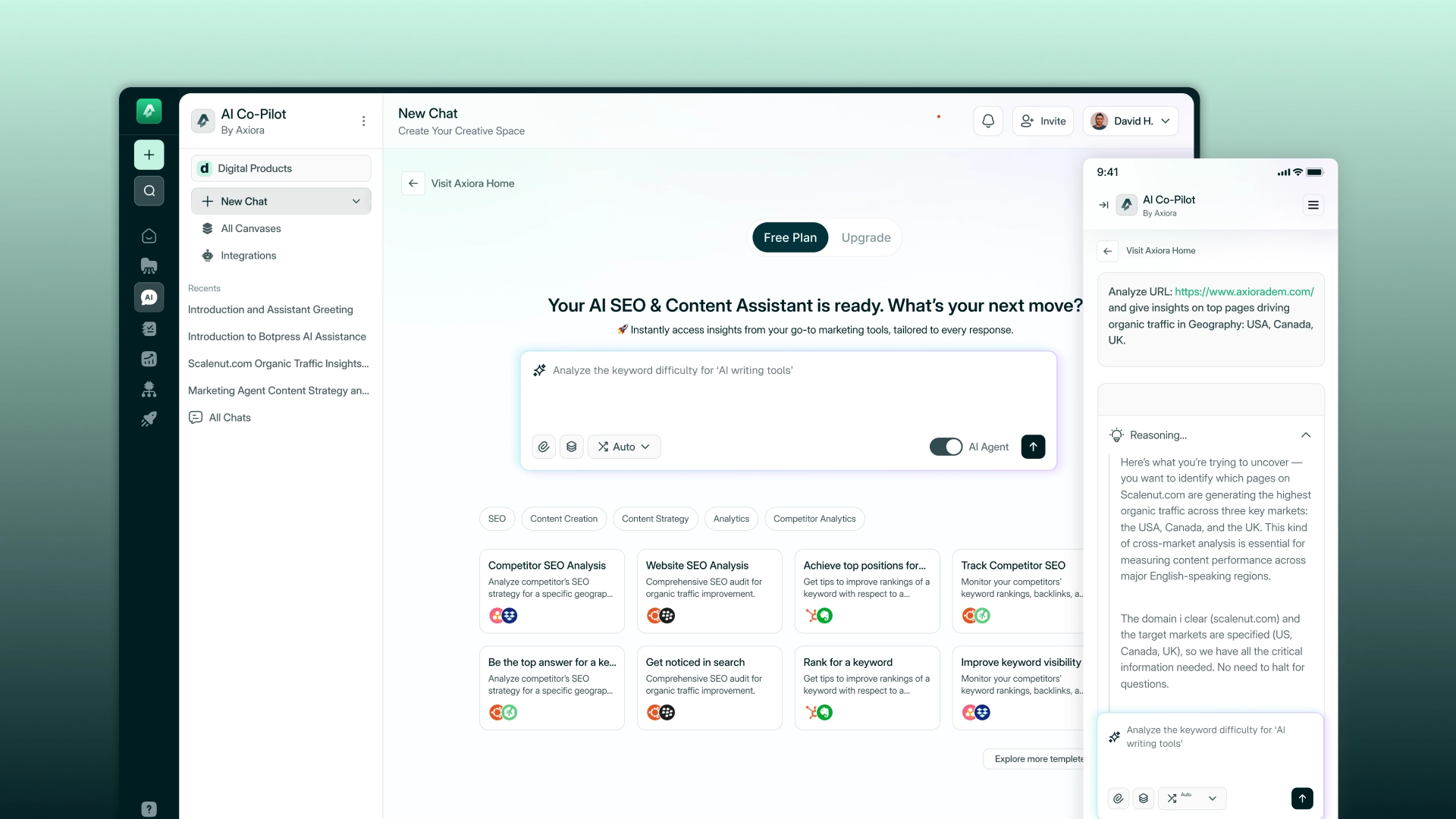
Analytics, resource management and internal processes
The CRM/ERP's built-in AI agent combines NLP for dialogue and ML models for analytics. NLP simplifies employee interaction with the system, while machine learning algorithms generate sales forecasts, identify risks, and optimize processes:
- analyzes CRM and ERP data , builds sales forecasts, evaluates campaign effectiveness, identifies risks and process bottlenecks;
- manages tasks within business systems : distributes requests, plans tasks, monitors deadlines and notifies those responsible;
- Optimizes inventory and logistics – with built-in AI, ERP forecasts product demand, automatically generates supplier orders, and builds logistics routes, allowing you to operate with minimal costs;
- analyzes large amounts of sales, production, and financial data , reveals hidden patterns, and enables decision-making based on accurate forecasts;
- recognizes and enters data from documents (invoices, delivery notes), reducing the likelihood of errors and speeding up the financial accounting process.
A key feature of AI agents is their ability to learn from a company's history. AI agents in CRM/ERP use a combined approach: LLMs are trained on conversational examples and documentation to better understand requests, while ML models analyze sales, interaction, and financial history to provide accurate forecasts and recommendations. This makes them a valuable asset that only gets smarter every day.
Using AI in CRM for various business sectors
AI agents can be adapted to the specifics of any industry and benefit businesses of any type.
- AI in CRM for online stores helps customers find the right product, selects additional items for cross-selling and upselling, guides them through checkout, and can even automatically create shopping carts. This reduces cart abandonment and increases conversion.
- Intelligent assistants in call center CRMs route customer calls and inquiries, transferring them to the appropriate operator or department. This reduces request processing time, reduces the workload on employees, and improves service quality through fast and relevant responses.
- An AI assistant in CRM for banks and financial companies simplifies loan application analysis, risk assessment, and report generation. The program can monitor transactions, identify suspicious activities, and offer clients personalized financial solutions.
- AI agents in insurance companies' CRM systems automate claim assessments, select optimal products based on customer profiles, and conduct initial communication when submitting a claim. This speeds up the service process and reduces the risk of errors.
- AI-powered CRMs for logistics and warehouse management forecast demand, plan delivery routes, automatically generate supplier orders, and optimize warehouse management.
- An AI bot in CRM for construction companies helps monitor project progress, forecast material needs, manage contractors, and generate reports for investors.
- Intelligent assistants in CRM for real estate agencies analyze client needs, select the most suitable properties, assist with negotiations, and automatically generate documents such as contracts, certificates, and invoices.
- An AI assistant in the CRM for medical centers and clinics manages doctors' schedules, reminds patients about appointments, and collects and analyzes feedback. It can offer additional services and manage electronic patient records.
- A CRM for restaurants and cafes with AI processes reservations, analyzes guest preferences, facilitates the creation of personalized offers, and optimizes product procurement.
- An AI agent in a tourism and hospitality CRM acts as a virtual concierge: it helps clients book tours and rooms, selects itineraries, and answers questions. This allows for improved service quality without increasing staff.
- AI assistants in CRM systems for legal firms can automate document flow: generate contract templates, track court cases, and manage client requests, reducing the workload on lawyers and speeding up the service process.
- An AI bot in CRM for fitness clubs and beauty salons manages client bookings, provides appointment reminders, offers personalized services and promotions, and can analyze client preferences to increase loyalty.
- AI-powered CRM for IT companies enables project management, task tracking, team workload distribution, and performance analytics.
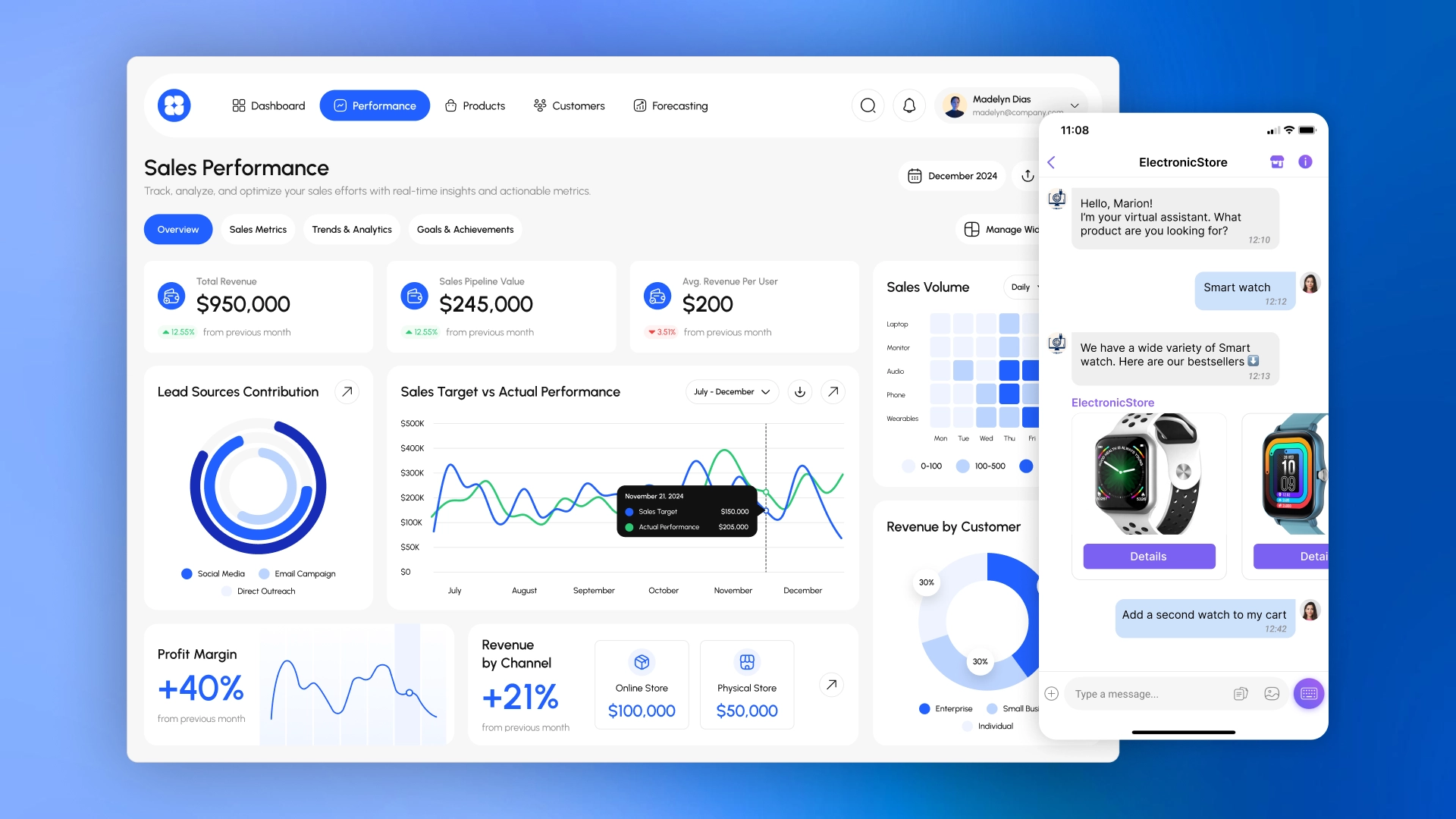
AI assistant in ERP systems
While ChatGPT integration into CRM primarily assists clients and managers during interactions, its primary purpose in ERP is to improve the accuracy of business planning, optimize internal processes, and reduce costs. In other words, AI-powered ERP focuses less on customer experience and more on company efficiency, time, and resource savings.
AI-enabled ERP utilizes not only NLP to process employee requests but also specialized machine learning models. If an AI chatbot is integrated into the system, the ERP can:
- Forecast inventory and accurately plan purchases using ML models that analyze sales history, seasonality, and market trends. This helps reduce inventory costs and avoid stockouts.
- Optimize logistics and production – machine learning algorithms plan routes based on traffic jams, weather conditions, and transportation costs, and predict production line loads.
- To control expenses , ML models identify anomalies in financial data, can suggest risky transactions, and generate more accurate profit and loss forecasts.
- Analyze staff productivity and the efficiency of resource use, technology, equipment, or even working time, and then suggest ways to optimize them.
- Automate document flow , recognize documents (invoices, delivery notes, contracts), automatically fill ERP fields, reducing manual work.
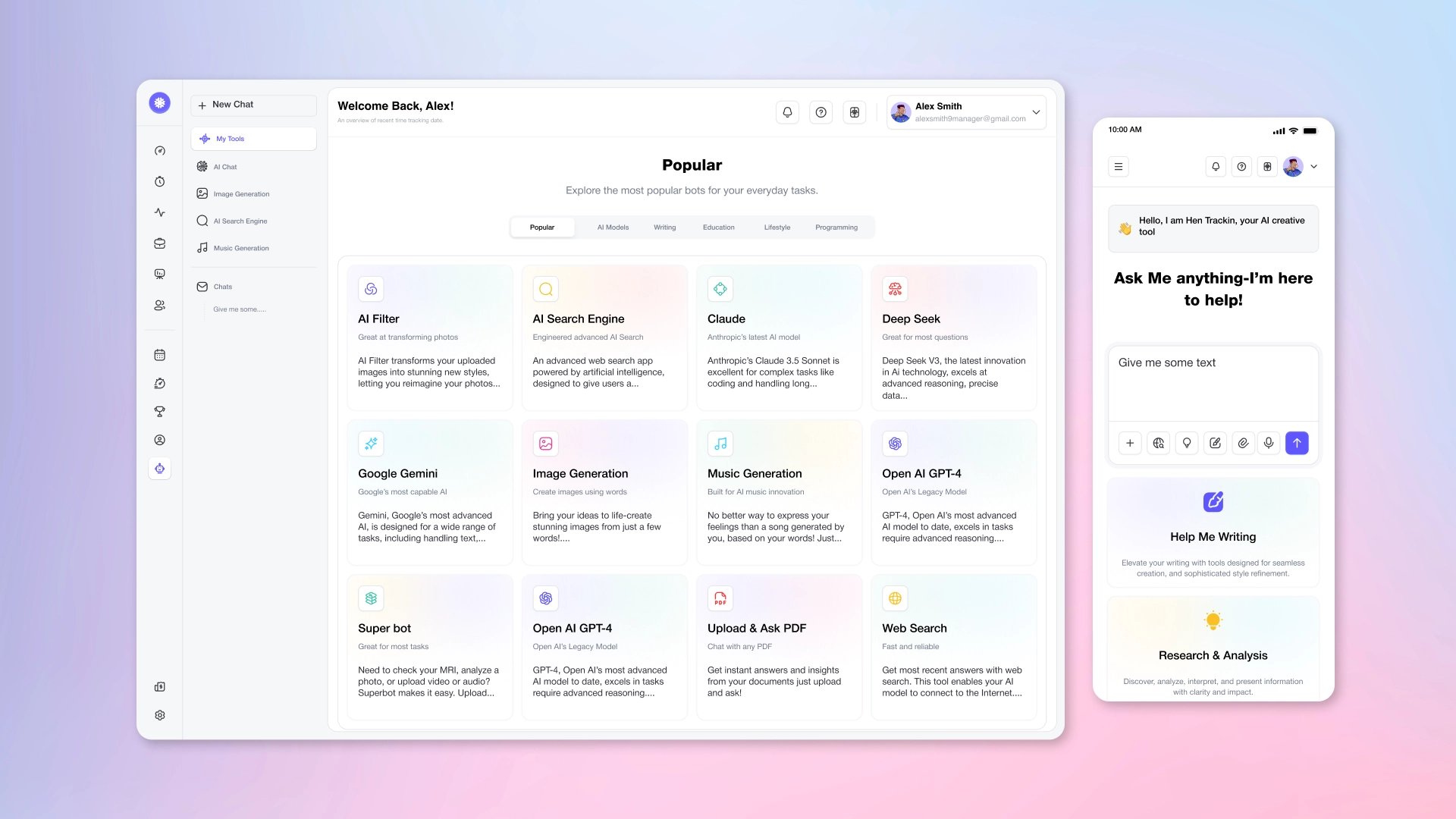
Steps to Integrate ERP and CRM with AI
The implementation of AI agents like ChatGPT and other specialized models into corporate CRM and ERP systems is a phased process. Our approach minimizes risks, ensures rapid staff onboarding, and maximizes the potential of artificial intelligence for your business.
- Business Task Analysis . The first stage involves auditing processes and identifying the goals for implementing artificial intelligence into software. For example, automating customer interactions, accelerating data processing, improving analytics, or increasing the efficiency of internal operations.
- Selecting and configuring AI models. We determine which models will be used: ChatGPT for natural language and dialogue processing, voice assistants for phone communications, predictive analytics algorithms for demand assessment, or system recommendation models. At this stage, customization parameters are also selected to suit the specifics of the business.
- AI integration with CRM and ERP . AI agents connect to existing infrastructure, including databases, customer management modules, warehouse management, financial management, and others. Proper configuration of APIs and workflows is crucial here.
- Training and testing. Models are trained on company data and tested in real-world scenarios. Employees are trained on new tools to maximize the effectiveness of AI CRM and ERP software.
- Scaling and support. After AI implementation, we offer technical support, including regular updates, response quality monitoring, and adaptation to new business processes and integrations.
How to order AI implementation in a CRM/ERP system?
AVADA MEDIA specializes in business automation across various industries and helps companies implement AI bots in CRM and ERP systems. We can integrate intelligent modules into an existing system or develop a custom program from scratch —complete with a built-in AI assistant and analytics for processing requests, streamlining workflows, and providing customer support. Our software products don't just automate processes; they transform the approach to sales, customer service, and resource management.
We help implement personalized and comprehensive solutions, offering transparent terms of cooperation, reasonable deadlines, and competitive pricing . Our approach allows clients to plan resources in advance and be confident in the results.
If you want to take your business to the next level through intelligent automation, order AI implementation in your CRM/ERP system today – we'll develop the optimal tool that will consistently support your business growth and quickly recoup your investment.
FAQ
-
How long will it take to implement an AI chatbot into an ERP system?
The timeframe depends on the project's complexity. Basic integration takes from 3 months, while developing a customized solution with deep learning takes longer. We conduct a detailed analysis of your business processes to determine the timeframe and develop an optimal project implementation plan.
-
Do you need a dedicated IT specialist to support AI CRM?
We offer comprehensive maintenance for your intelligent business management system, including updates and technical support.
-
What is the cost of implementing ChatGPT in CRM?
Project pricing is calculated individually and depends on the scale, complexity of the tasks, and required functionality. We offer optimal solutions for your budget and needs.
-
How is an AI agent trained in CRM and ERP systems?
The AI bot learns from your data and user interactions. We use the RAG method for implementation: instead of storing the entire database internally, the intelligent assistant accesses company sources, providing accurate responses and updating the knowledge base without complete retraining. Employees can provide feedback to accelerate learning, but their ongoing involvement is not required. Learn more about integrating AI agents through RAG.
-
Will an AI agent be able to recognize industry-specific terminology?
During the training phase, we customize the language model to your specific needs. This allows the AI bot in ERP and CRM to understand and use professional terminology – in medicine, law, finance, and other industries.
-
Can ChatGPT CRM replace employees?
No. An AI agent in a management system doesn't replace employees, but it frees them from routine work. AI takes over repetitive tasks, allowing your specialists to focus on strategic, creative, and complex issues that require human intelligence and empathy.
-
How to evaluate the effectiveness of an ERP/CRM AI chatbot?
Efficiency is assessed using key metrics: request processing speed, percentage of automated tasks, response accuracy, customer satisfaction, impact on sales, and reduction in staff workload. These metrics allow us to understand the true value of the AI agent and adjust its performance.
-
Is it possible to connect one AI assistant to a CRM, website, and messengers simultaneously?
Yes, the AI assistant connects to multiple external platforms simultaneously: websites, online stores, messengers, configuration tools, email services, analytics, and other corporate systems. Integration is performed via the CRM's API or the n8n platform. Learn more about setting up the AI agent via n8n.
-
Is it possible to change the functionality of an AI agent after it has been implemented into the control system?
The AI agent adapts to new tasks. You can add new scenarios, adjust request processing algorithms, expand integrations with external services, and update the knowledge base so that your business system's intelligent assistant evolves with your company.




